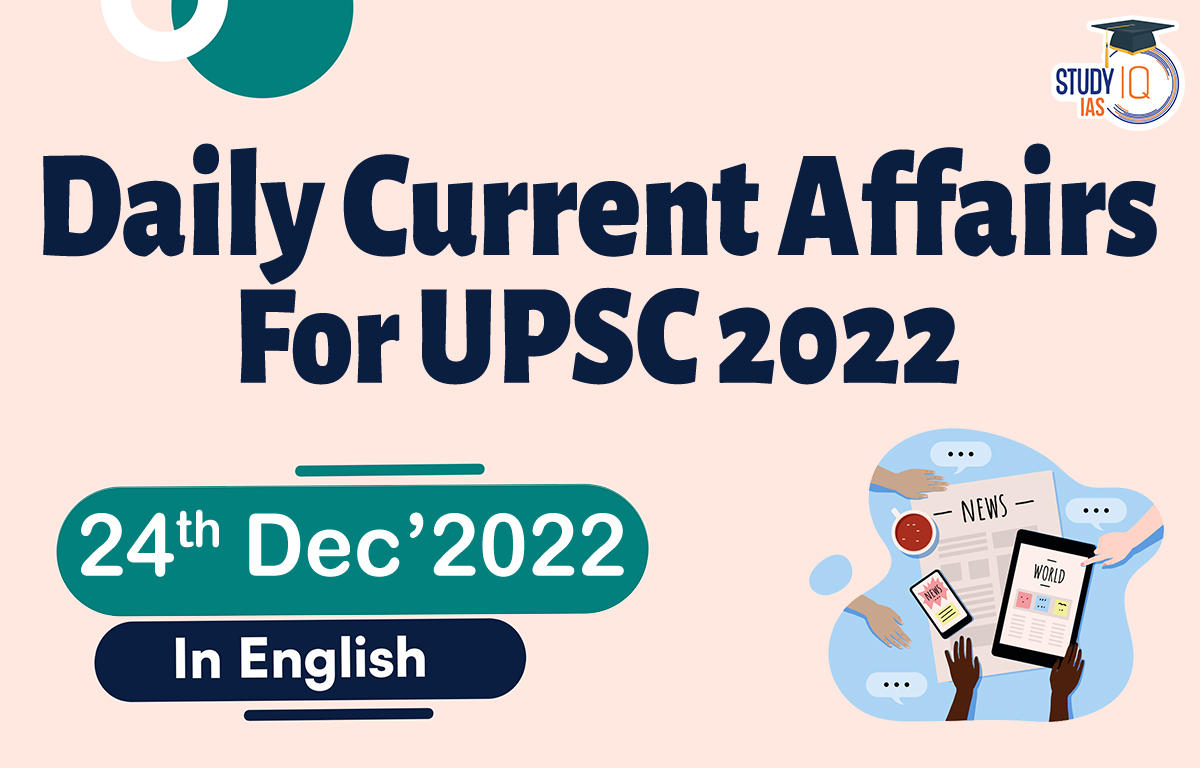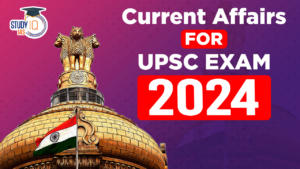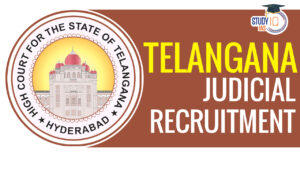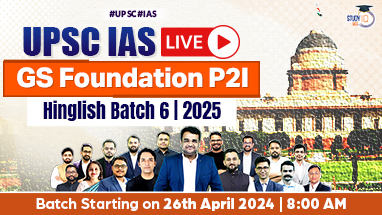Daily Current Affairs for UPSC 2022
Q) Recently seen in news, the term ‘Cryomesh’ is best related to which one of the following?
- A technique for storing crop seeds in a seed bank for a long time.
- A material used as a substrate in the process of preserving coral cells and tissues.
- A low-cost device to safely store human organs to be used in organ transplantation.
- A platform to store the samples retrieved from asteroids for research purposes.
Daily Current Affairs for UPSC – 23 December 2022
Explanation:
- Option (2) is correct: Scientists working on Australia’s Great Barrier Reef have successfully used the ‘Cryomesh’ to freeze coral larvae at the Australian Institute of Marine Science (AIMS). Cryomesh is a specially fabricated mesh used as substrate in cryopreservation. This is lightweight and can be manufactured cheaply. It better preserves coral and has the properties of cryoplates. This mesh technology will help store coral larvae at -196C (-320.8°F). Coral cryopreservation is the process of preserving coral cells and tissues at very low temperatures. Cryopreservation techniques aim to minimize ice crystal formation and keep corals and their cells alive while they’re being frozen. The Great Barrier Reef has suffered four bleaching events in the last seven years including the first ever bleach during a La Nina phenomenon. Cryogenically frozen coral can be stored and later reintroduced to the wild. This could eventually help to restore reefs threatened by climate change. It can build bigger, more diverse bank of frozen living corals, preserving biodiversity.
Q) Consider the following statements:
- India and Russia initiated the Mission Integrated Bio-refineries at COP26 to UNFCCC.
- India has set a target to achieve 20 percent ethanol blending in petrol by 2035.
Which of the statements given above is/are correct?
- 1 only
- 2 only
- Both 1 and 2
- Neither 1 nor 2
Explanation:
- Statement 1 is incorrect: Mission Integrated Bio-refineries is co-led by India and the Netherlands and announced during the UNFCCC’s COP26 at Glasgow. Integrated biorefineries employ combinations of feedstock and conversion technologies to create a variety of co-products and biofuels.
- Statement 2 is incorrect: Ethanol Blended Petrol (EBP) programme seeks to achieve blending of Ethanol with Petrol with a view to reduce pollution, conserve foreign exchange and increase value addition in the sugar industry. The ‘National Policy on Biofuels’ notified by the Government in 2018 envisaged an indicative target of 20% ethanol blending in petrol by year 2030. However, considering the encouraging performance, due to various interventions made by the Government since 2014, the target of 20 percent ethanol blending in petrol is advanced to 2025-26.
Q) Consider the following statements about the ‘dieback disease’ in trees:
- It is mainly caused by Pseudomonas bacteria.
- It mainly affects the roots of the tree.
- In severely infected trees, it results in a nearly complete loss of fruit production.
Which of the statements given above is/are correct?
- 1 and 2 only
- 2 and 3 only
- 3 only
- 1, 2 and 3
Explanation:
- Statement 1 is incorrect:Dieback disease has hit neem trees in Telangana. Dieback Disease is mainly caused by the fungi Phomopsis azadirachtae. Although Dieback is a fungal disease but the neem trees are sometimes hit by insect infestation and the combination of both increases its impact.
- Statement 2 is incorrect: Dieback disease mainly affects leaves, twigs and the inflorescence of neem trees of all ages. It was first reported in the country during the 1990s near Dehradun in Uttarakhand, while it was first noticed in Telangana in 2019. Twigs affected by the disease should be cut and a blend of fungicide and insecticide can be sprayed after their removal. Alternatively, a pit should be dug around an affected tree and water mixed with fungicide and an insecticide should be poured in it.
- Statement 3 is correct: Dieback disease causes almost 100% loss of fruit production in severely infected trees. Neem, known scientifically as Azadirachta indica, neem is a tree in the mahogany family Meliaceae. It is native to the Indian subcontinent. It is typically grown in tropical and semi-tropical regions. It is deciduous in nature, shedding many of its leaves during the dry winter months.
Q) With reference to cotton production in India, consider the following statements:
- India has the highest area under cotton cultivation in the world.
- Cotton yarn and fabric exports account for approximately 23% of total apparel exports from India.
- At present, there is no minimum support price announced by the government for cotton.
Which of the statements given above are correct?
- 1 and 2 only
- 1 and 3 only
- 2 and 3 only
- 1, 2 and 3
Explanation:
- Statement 1 is correct:India is the largest cotton producer (23%) in the world and has the highest area under cotton cultivation (39% of world area). India is the world’s third-largest exporter of cotton and the second-largest exporter of textiles, therefore, also contributing significantly to the country’s economy. Yield per hectare of cotton in India remained at a low of 460 kg lint per hectare when compared to the world average of 800 kg lint per hectare.
- Statement 2 is correct:Cotton yarn and fabrics export account for about 23% of India’s total textiles and apparel export. There is a price rise witnessed in the current season due to poor productivity despite a large area under cotton production in the Country. Cotton productivity is the biggest challenge in the country, resulting in less cotton production despite largest area under cotton cultivation.
- Statement 3 is incorrect:The minimum support prices are announced by the Government of India at the beginning of the sowing season for certain crops on the basis of the recommendations of the Commission for Agricultural Costs and Prices (CACP). Government announces minimum support prices (MSPs) for 22 mandated crops and fair and remunerative price (FRP) for sugarcane. These are: paddy, wheat, barley, jowar, bajra, maize and ragi, gram, arhar/tur, moong, urad and lentil, groundnut, rapeseed/mustard, toria, soyabean, sunflower seed, sesamum, safflower seed and nigerseed, Raw cotton, Raw jute, Copra, De-husked coconut, Sugarcane (Fair and remunerative price), Virginia flu cured (VFC) tobacco. Minimum Support Price (MSP) for medium staple cotton for 2022-23 kharif season is Rs 6,080. Currently, domestic prices are higher than the MSP of cotton.
Q) Consider the following statements about ‘Share Buyback’:
- The promoters of a company are not allowed to participate in the stock exchange route of share buyback.
- On the recommendation of the Keki Mistry committee, SEBI is phasing out share buybacks through the stock exchange route.
Which of the statements given above is/are correct?
- 1 only
- 2 only
- Both 1 and 2
- Neither 1 nor 2
Explanation:
- Statement 1 is correct: Share Buyback is when a listed company buys its own shares from the existing shareholders, it is known as a share buyback, which is also called share repurchase. In the stock exchange route a company can buy back shares only on the stock exchanges having nationwide trading terminals. The buyback of shares is made only through the order-matching mechanism. In this method, the promoters, or persons in control of a company are not allowed to participate.
- Statement 2 is correct: As recommended by the Keki Mistry committee, SEBI will phase out buyback through the stock exchange route with effect from April 1, 2025. As per the recommendations of the Keki Mistry-headed committee, under the stock exchange route, there is a possibility of one shareholder’s entire trade getting matched with the purchase order placed by the company. It could deprive other shareholders of availing the benefit of buyback. It is against the principle of equitable treatment, which forms the basis of all corporate actions


 Current Affairs 25th April 2024 for UPSC...
Current Affairs 25th April 2024 for UPSC...
 Editorial of the day (25th Apr): UK's Rw...
Editorial of the day (25th Apr): UK's Rw...
 Telangana Judicial Recruitment Notificat...
Telangana Judicial Recruitment Notificat...

















